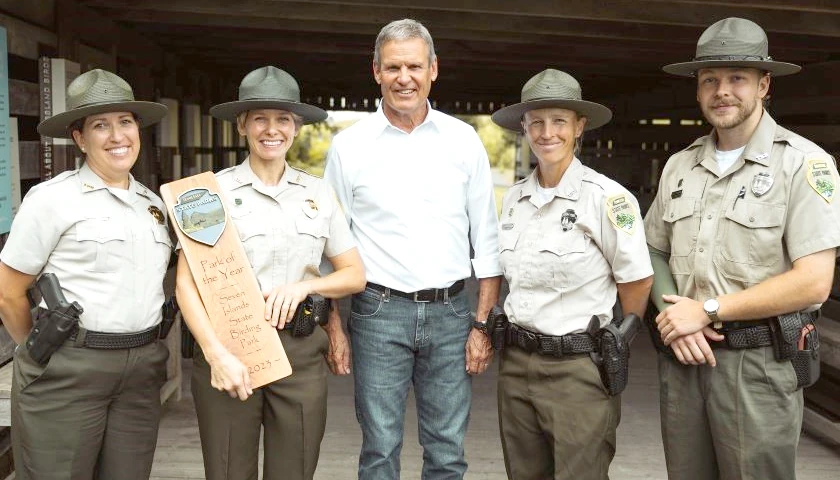Writer’s Note: This is the second of a three-part series about Madison, Tennessee resident and businessman Robert Sherrill, who seeks a federal pardon from U.S. President Donald Trump for past federal drug offenses.
As reported Saturday, Robert Sherrill’s path to redemption began on a bus ride to the federal prison facility in Forrest City, Arkansas. Authorities had convicted Sherrill of a drug-related felony.
At age 25, Sherrill had already resolved he wouldn’t die in a penitentiary, as his father did.
“I didn’t want that to be my legacy,” Sherrill, now 37, said.
In prison, Sherrill would have no luxuries. The bus ride there foreshadowed that.
“We were like cattle. They have animal response units. They pick a dog up or a critter and just throw it in there. We were shackled head, feet, and arms with no seat belts on, crowded in the back of a hot van driving four hours to get to a prison. I’ll never forget that. It’s like a cage inside of a cage. That’s how they haul the men around,” Sherrill said.
“If you have to use the bathroom then you can’t use it. They will never pull over. A guy next to me peed on himself because they wouldn’t let him use the bathroom.”
Some movies, like Office Space, describe federal prison as almost like a posh resort compared to a state lockup. When asked about that, Sherrill told The Tennessee Star it was anything but — and probably worse than a state prison. While there, he said he served time alongside members of the Mexican drug cartel, the Texas Syndicate gang, and high-ranking members of both the Gangster Disciple street gang and the Aryan Brotherhood.
“It’s so segregated that each ethnic group or gang had their own side of the cafeteria. They had their own phones and their own TV’s that you cannot touch,” Sherrill said.
“I have seen people die and get murdered. I have seen people stab each other and go to war. I’ve seen people Life Flighted out of that place. I’ve seen people not make it home. It was very traumatizing. Prison is not a nice place for anybody. Some people never make it out. Outside of the raping, the stories you hear about prison are true.”
Despite the brutality surrounding him, Sherrill said he still had time to reflect.
“I don’t want my life to be this way. You understand I am meeting people who will never get out again. They will literally die in prison. And then you’re seeing people die. You’re seeing people sick and not make it home,” Sherrill, now a successful businessman, said.
“Logically, that is a wakeup call. I used it as such. I utilized that time to educate myself to know more about business because I knew what I wanted to do when I got out. Everything I cultivated there I am utilizing now.”
Sherrill left prison at the age of 30.
And, as The Star will report in the final part of our three-part series, reentry into society put Sherrill on a new path of opportunity and the chance to influence Tennessee for the better. But his past felony conviction restricts him from contributing all that he wants to contribute.
A pardon from U.S. President Donald Trump could, if granted, enable Sherrill to accomplish grander things.
– – –
Chris Butler is an investigative journalist at The Tennessee Star. Follow Chris on Facebook. Email tips to [email protected].






I’m sorry, man. I really am. But if you break society’s rules, there’s a price you have to pay. And writing this story without specifics is a bit disingenuous and boarders on journalistic malpractice. “A drug-related felony” could mean anything.
So what did he do? Was he in the room/vehicle when the bust went down or was he driving a school bus full of children, making deals, all while doing random drive-by’s ? Yes the examples are extreme but each could be considered a felony.